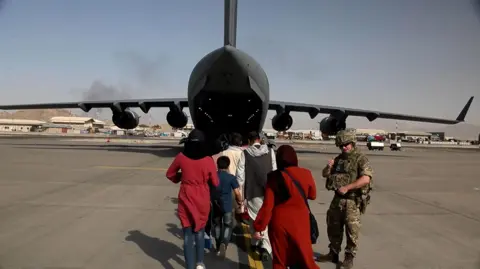
Zalmai Rasoul, the Afghanistan Ambassador to London, has responded to the suspension of consular activities by some Afghan consulates in European countries, stating that the Afghan consulate in the United Kingdom will continue its operations without interruption.
In a statement released on Tuesday, July 30th, he affirmed the embassy’s commitment to supporting the rights and interests of Afghan citizens abroad.
Ambassador Rasoul emphasized that “the Afghanistan Embassy in London firmly declares that all consular and diplomatic services will continue without any disruption.” He added that “we are committed to supporting the rights and interests of Afghan citizens abroad and will utilize all our resources and facilities to provide the best possible services.”
Yesterday, the Taliban Foreign Ministry announced that the activities of 14 Afghanistan diplomatic and consular missions in European countries, which operate without coordination with the ministry, were deemed “unauthorized and a clear violation of accepted principles.”
The ministry’s statement indicated that the Afghanistan missions in London, Belgium, Berlin, Bonn, Switzerland, Austria, France, Italy, Greece, Poland, Sweden, Norway, Canada, and Australia were considered invalid due to their refusal to cooperate and coordinate with the ministry.
In response, Nazifullah Salarzi, the Afghanistan Ambassador to Belgium, has confirmed that consular services at all Afghanistan consular missions in Belgium and the European Union will continue. He asserted that the Afghanistan Embassy in Belgium remains recognized by the host country.
The conflicting statements from Afghanistan’s diplomatic representatives highlight ongoing issues within Afghanistan’s foreign service operations. Despite the Taliban administration’s decision to invalidate certain consular activities, key representatives, such as those in London and Brussels, maintain their commitment to uninterrupted service.
This comes amid the fact that no countries currently recognize the Taliban regime in Afghanistan as a legitimate government.
The resolution of these discrepancies will be crucial in ensuring the effective representation and support of Afghanistan citizens abroad.
 Afghanistan Peace Campaign
Afghanistan Peace Campaign



